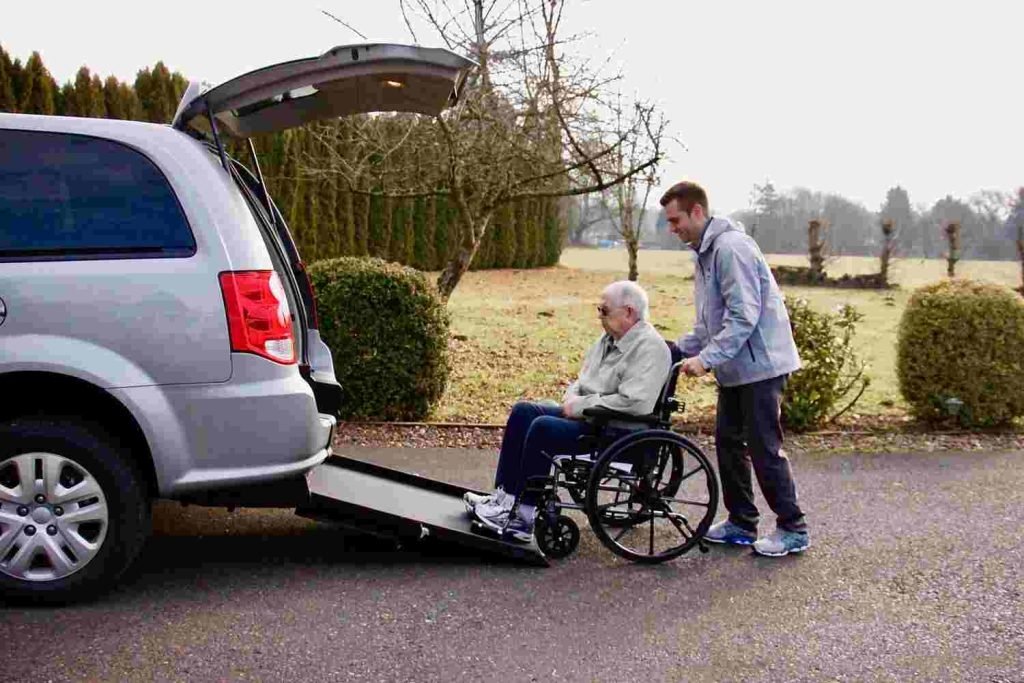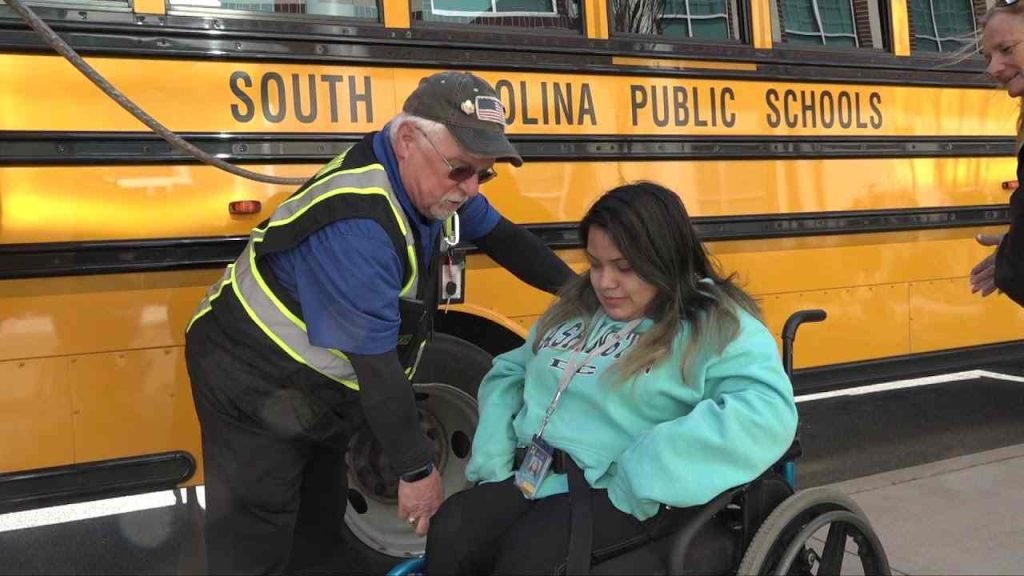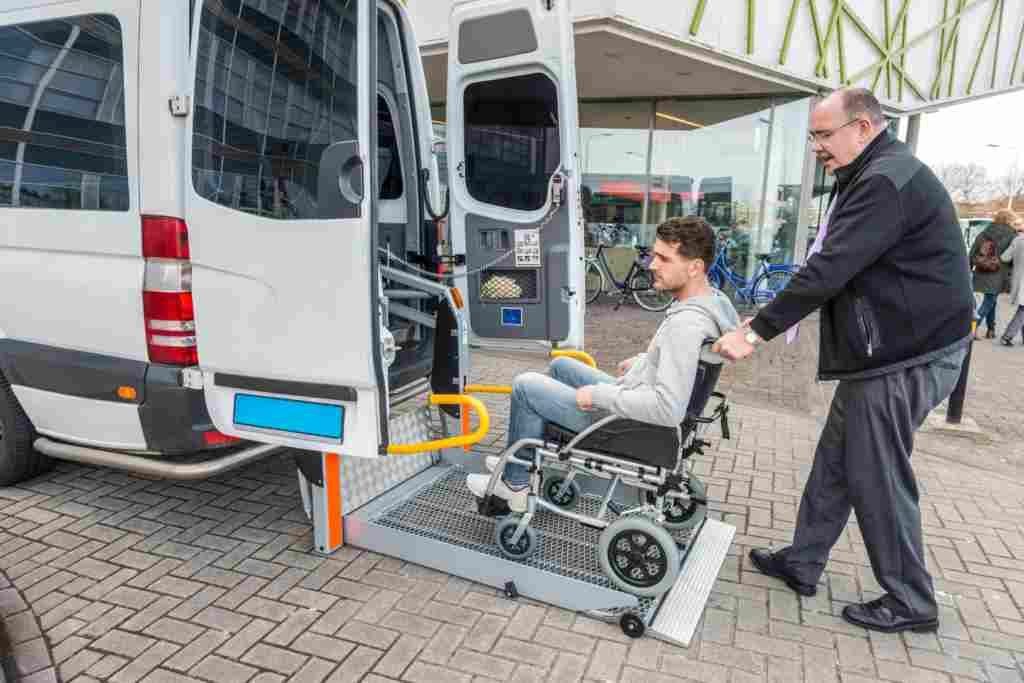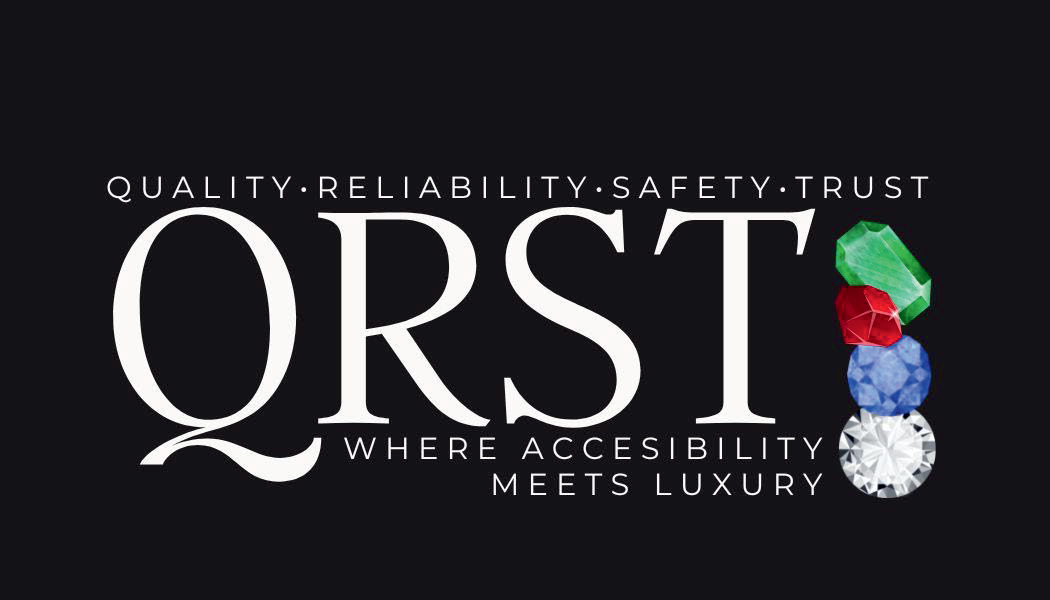In Washington, wheelchair transportation services are equipped to handle emergencies with a dedicated and compassionate approach. When unexpected situations arise, such as medical emergencies or unforeseen delays, these services prioritize the safety and well-being of their passengers. Let’s delve inside the topic with QRST Wheelchair Transportation Service and whether it’s coordinating with local emergency services, providing first aid, or offering constant communication with passengers and their families, wheelchair transportation services in Washington are committed to delivering peace of mind during challenging times. They have trained drivers and staff who are prepared to respond promptly and efficiently to any emergency situation. This includes having the necessary equipment and protocols in place to ensure that passengers receive the care they need while enroute to their destination.

Emergency Response Preparedness
Pre-scheduled wheelchair transport services in Washington offer the added benefit of prioritizing emergency response preparedness to ensure the safety and well-being of their passengers. They proactively develop comprehensive strategies and plans for a wide range of emergency situations, including medical incidents and unexpected delays. By having these protocols in place and blessed with the benefit of pre-scheduled services can act swiftly and effectively in times of crisis also providing passengers with the assurance of a secure and reliable transportation experience.
Safety and Well-being Priority
The importance of accessible transportation for disabled individuals in the DMV region is underscored by the fact that above all, the safety and well-being of passengers are paramount for wheelchair transportation services. Every aspect of their operation is centered on providing a secure and comfortable journey for individuals with mobility challenges in the DMV area. This commitment extends to their emergency response procedures, where passenger safety remains the top priority, highlighting the critical role accessible transportation plays in ensuring the security and convenience of disabled individuals in the DMV.
Trained Staff and Drivers
These services maintain a team of trained and experienced staff and drivers who are well-prepared to handle emergencies. They undergo specialized training in first aid, emergency response, and passenger care. This training ensures that they can respond effectively to unexpected situations while providing essential assistance and support to passengers and also providing essential assistance and support to children with disabilities, underscoring the commitment of such services to the safe and reliable transportation of vulnerable young passengers in the DMV area. In the heart of the DMV region, mobility solutions for children with disabilities are made possible by services that maintain a team of trained and experienced staff and drivers who are well-prepared to handle emergencies.

Prompt Emergency Response
In the event of an emergency, wheelchair transportation services in Washington pride themselves on their ability to respond promptly. Whether it’s a medical issue or a vehicle-related problem, their staff is trained to react swiftly and professionally to address the situation and keep passengers safe.
Medical Emergency Protocols
When facing medical emergencies on board, these services follow established protocols to provide immediate assistance. This includes administering first aid, monitoring vital signs, and, if necessary, coordinating with local medical professionals or hospitals to ensure passengers receive the necessary medical attention.
Coordination with Local Services
In cases of more complex emergencies, such as accidents or severe medical issues, wheelchair transportation services prioritize seamless collaboration with local emergency services. This partnership facilitates a swift and well-coordinated response, ensuring that passengers receive immediate and specialized care when necessary. By working hand-in-hand with local first responders and healthcare professionals, these services enhance the level of support and expertise available during critical moments, further underscoring their commitment to passenger safety and well-being.

First Aid Capabilities
Wheelchair transportation services prioritize passenger safety by ensuring that their vehicles are well-stocked with essential first aid supplies. Their trained personnel are adept at administering aid promptly, whether dealing with minor injuries or more serious medical issues. This proactive approach to onboard medical support offers reassurance to passengers and their families, knowing that immediate assistance is available in case of unexpected health concerns. Additionally, these services maintain a direct line of communication with local healthcare providers, enabling them to swiftly request and coordinate additional medical help if required. Overall, their commitment to passenger well-being extends beyond transportation, providing a secure and caring environment throughout the journey.
Constant Communication
These services employ various communication channels to ensure accessibility and timeliness in updates. They utilize text messages, phone calls, and online tracking systems to provide real-time information, allowing passengers and their families to stay informed no matter where they are. This proactive communication approach not only addresses immediate concerns but also fosters a sense of trust and reliability, demonstrating the commitment of wheelchair transportation services to the well-being and peace of mind of their passengers during emergencies. By keeping the lines of communication open and transparent, they create a supportive network that enhances the overall experience of those they serve.
Passenger and Family Support
rained professionals are readily available to address concerns, answer questions, and provide emotional support, recognizing that the well-being of passengers and their loved ones goes beyond physical assistance. By extending this compassionate care, these services create an environment of trust and empathy, alleviating anxiety and fostering a sense of security during challenging situations. This holistic approach ensures that individuals with mobility challenges not only receive efficient emergency assistance but also experience the utmost compassion and consideration throughout their journey.
Equipment and Protocols
In addition to specialized equipment and protocols, wheelchair transportation services maintain close partnerships with local medical facilities and emergency responders. This collaboration ensures swift access to additional medical assistance when needed, further enhancing their emergency response capabilities. Moreover, they conduct regular drills and simulations to train their staff in real-life emergency scenarios, promoting efficiency and preparedness. By combining equipment, protocols, partnerships, and ongoing training, these services create a comprehensive emergency response system, prioritizing the safety and well-being of their passengers at all times.
Peace of Mind During Emergencies
Ultimately, the overarching goal of wheelchair transportation services in Washington is to provide peace of mind to passengers and their families during emergencies. By being well-prepared, responsive, and compassionate, they aim to turn challenging situations into manageable ones, ensuring that individuals with mobility challenges can travel safely and confidently.
Continuous Training and Improvement
Wheelchair transportation services in Washington understand the importance of continuous training and improvement in emergency response. They regularly update their staff and drivers on the latest protocols, techniques, and safety measures. This commitment to ongoing education ensures that their team remains well-prepared for any new challenges that may arise and can adapt their emergency response strategies accordingly. By staying up-to-date, these services can provide the highest level of care and support to passengers during emergencies, instilling confidence in both passengers and their families.
Proactive Vehicle Maintenance
To minimize the risk of emergencies related to vehicle issues, wheelchair transportation services prioritize proactive vehicle maintenance. They implement strict maintenance schedules and conduct thorough inspections to ensure that their vehicles are in optimal working condition. By proactively addressing potential problems, they can reduce the likelihood of breakdowns or delays, enhancing the overall safety and reliability of their services, and providing passengers with a smoother and worry-free transportation experience.
Compliance with Regulatory Standards
Wheelchair transportation services in Washington adhere to strict regulatory standards to maintain the highest levels of safety and quality in their operations. They stay updated on the latest regulations and guidelines related to transportation and accessibility for individuals with mobility challenges. By ensuring compliance with these standards, these services not only provide a safe and reliable mode of transportation but also demonstrate their commitment to upholding the rights and well-being of all passengers, especially during emergencies when adherence to safety standards is crucial.
Conclusion:
In conclusion, transport management plays a pivotal role in the modern world, facilitating the smooth movement of goods and people across various modes of transportation. It encompasses a wide range of tasks, from route optimization and vehicle maintenance to scheduling and logistics coordination. By effectively managing these elements, transport management systems contribute to increased efficiency, reduced operational costs, and improved customer service. In an era of increasing globalization and urbanization, the significance of efficient transport management cannot be overstated, as it directly impacts economic growth, environmental sustainability, and overall quality of life.
FAQs:
What is the phone number for Medicaid transportation in DC?
The phone number for Medicaid transportation in Washington, D.C. may vary depending on the specific Medicaid program or managed care organization. To obtain the correct phone number, individuals should contact their assigned Medicaid provider or visit the official website of the D.C.
What does the Washington State Department of transportation do?
The Washington State Department of Transportation (WSDOT) is responsible for planning, designing, constructing, and maintaining the state’s transportation infrastructure, including highways, bridges, ferries, and public transportation systems.
Is there free transportation in Washington DC?
In Washington, D.C., there is limited free transportation available, primarily within the downtown area. The DC Circulator offers free bus rides along specific routes in the city.
Is it safe to use public transportation in Washington DC?
Generally, public transportation in Washington, D.C. is considered safe. The city’s Metro system and buses have security measures in place, but like any urban area, it’s advisable to stay aware of your surroundings and follow safety guidelines, especially during late hours.
What does transport management deal with?
Transport management deals with the planning, coordination, and optimization of various aspects of transportation systems, including route planning, vehicle maintenance, scheduling, and ensuring efficient and cost-effective movement of goods or passengers.
